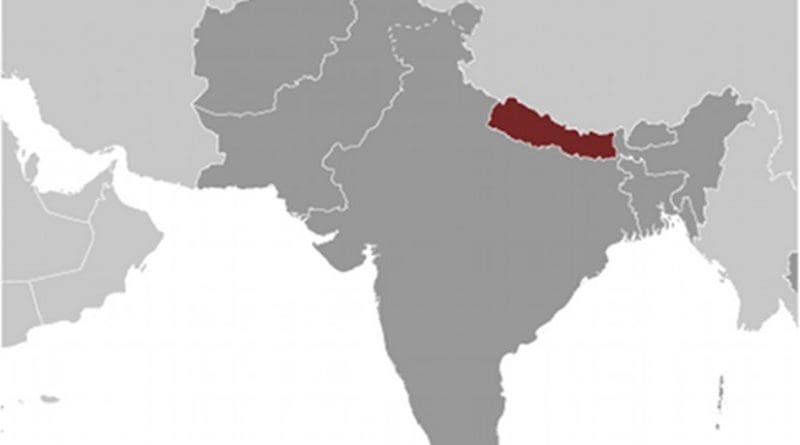Nepal: Madhesi Groups Accept New Amendments – Analysis
By SAAG
By Dr. S. Chandrasekharan
After much dilly dallying and hesitation, the main Madhesi group SLMM- Samyukta Loktantric Madhesi Morcha agreed to accept the new amendments to the constitution which in their view addresses three of their concerns-namely citizenship, representation in the Upper house and on the working language in the provinces.
Although there is no word yet whether the other group led by Upendra Yadav of SSF-N Sanghiya Samajbadi Forum is willing to go along with the amendments, the bold decision of the majority group representing the Madhesis should be welcomed.
In any situation, where there has been a tremendous controversy, agitation with loss of lives and property there will always be plus and minuses. In this case the Madhesis are set to benefit more by the amendments and they should therefore whole heartedly welcome the changes and look forward to the next step in the federal set up with elections to local, regional and national levels, all to be completed by January 2018.
This will also put an end to the deep polarisation that is threatening the unity of the country.
The Amendments & the Issues Involved
There were four major issues in the constitution that were of concern to the Madhesis and the Janajathi groups. These related to 1. Demarcation of provinces 2. Representation in the Upper House 3. Language and 4. Citizenship.
After many months of continued political disturbances, the Dahal led government finally registered a seven-point amendment to the Constitution on 29th of November. These were:
- Articles 9 and 7 (2) were to be amended to use all languages recommended by the Language commission.
- Article 11 (6) to be amended to let foreign women married to Nepali National to acquire naturalized citizenship. (The restrictions on holding certain constitutional posts like President etc. to continue).
- Article 86(2) a, relating to the composition of the Upper House to be amended to include three persons each from Women, Dalit and a person with disability or minority and the rest 35 out of 56 members to be elected on proportional basis ( ensuring that at least 14 are elected from among women).
- Article 287 (6) a, to be added for preparing a list of all mother tongues spoken to be submitted to Nepal Government as per article 6.
- Annexure (4) to be amended to remove the hill districts from Province No. 5 and add them to province No. 4- (This makes Province 4, a Tharu dominated one)
Some Points on the Amendments
- It is surprising– rather intriguing why the Province No. 5 which comprised both the Terai and Hill districts was tampered with when there was no demand for one as such. As expected there have been spontaneous demonstrations against such division both in the Hill and the Terai areas. It has also given a handle to the UML to agitate and consolidate its position in these districts.
- The real objection was on Province No. 2 that involved the inclusion of three supposedly Terain districts- Jhapa, Morang, Sunsari. There were objections on two other districts too- Kailali and Kanchanpur in the west. The Government is said to be in the process of setting up a “High Level Federal Commission” to look into the delineation of the controversial ones and come up with recommendations.
- The bias against women continues to be embedded in the constitution as the provision for women marrying Nepali men acquiring naturalised citizenship already exists.
- The issue of naturalized citizens not eligible for certain constitutional posts exists in the constitution of many other countries too and it is good that it is not being amended as was being demanded by a section of the Madhesi groups.
The Way Forward
The Government has declared that it is willing to make changes if any to suit the parties and there is hope that the main opposition party the UML which is totally against any amendment to the constitution ( they are now riding on a strong nationalist platform) could also be brought on board.
The problem will be with Upendra Yadav and his small group of SSF-N. On the same day, the amendment was being registered, Upendra Yadav came with new demands along with former Prime Minister Baburam Bhattarai’s Naya Shakthi, demanding among other things, total proportional representation in the Parliament, proportional inclusion in every organ of the State, directly elected executive President etc. thus going against the very fundamentals of the new constitution. Upendra Yadav appears to be a highly frustrated politician and the other Madhesi leaders seem to have realised it now though it is too late.
Acceptance of the amendments may not meet all the demands of the Madhesis but there is always a time to fight and a time to move on. The Madhesi leaders should accept the amendments as such and move on. They can at least tell the people back home of having achieved something after their agitation. They should now look forward to the elections to the local bodies that will have to be conducted by April 2016. Only then the regional and later national elections can be held as provided for in the Constitution.

